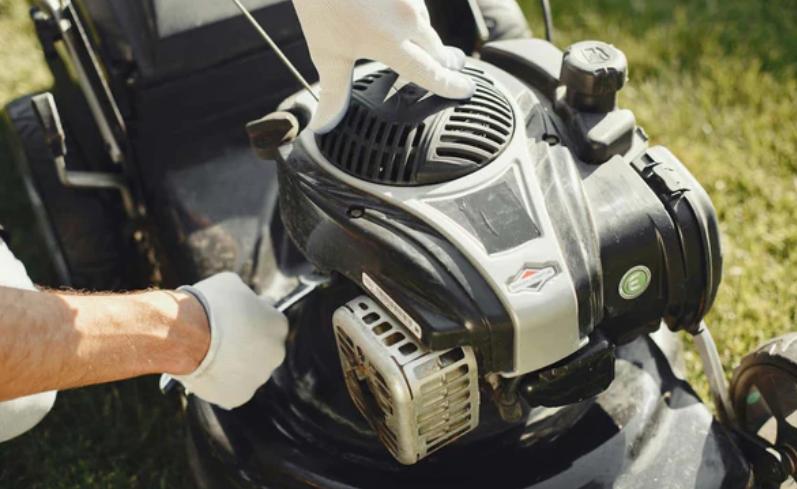You’re ready to mow the lawn, but the lawn mower won't start, triggering a wave of frustration and wasted time. This guide is here to help you troubleshoot when your lawn mower won't start or runs inconsistently. We’ll explore common issues like fuel problems, spark plug failure, air delivery blockages, and electrical malfunctions. With clear steps and practical advice, you’ll gain the confidence and tools needed to diagnose and possibly fix your lawn mower without too much hassle or expense.

Fuel Issues – The Most Common Cause
Empty or Stale Fuel
Fuel is often the culprit behind a stubborn lawn mower. If your tank is empty, this one’s an easy fix—just refill. However, stale fuel, which can degrade in as little as 30 days, might also be a problem. Over time, fuel can lose its volatility and form deposits, which choke the engine. Draining old fuel and refilling fresh can often solve the issue.
Gas Cap Vent Problems
The gas cap vent plays a crucial role in ensuring the fuel flows smoothly. If the vent is clogged, it creates a vacuum inside the tank, preventing fuel from reaching the engine. Cleaning or replacing a faulty gas cap can restore the balance needed for your mower to start efficiently.
Air and Spark Delivery Problems
Clogged Air Filter
A lawn mower needs a clean air filter to function correctly. Dust and debris can block the filter, limiting airflow and choking the engine. Remove the air filter to inspect it. If you find it’s dirty, cleaning it with soapy water and allowing it to dry might do the trick. Replace it if it’s too damaged to clean.
Spark Plug Faults
Dirty or worn spark plugs create start-up problems by failing to deliver the necessary spark. Remove the spark plug and inspect its condition. If it’s caked in carbon or damaged, a replacement might be necessary. Ensure the new plug has the correct gap for efficient starting and running.
Carburetor and Fuel-Line Blockages
Dirty or Gum-full Carburetor
The carburetor mixes air and fuel for combustion, but can become clogged over time. This build-up prevents the proper air-fuel mixture, stopping your engine from starting. Regular cleaning with a carburetor cleaner might prevent and resolve these issues, ensuring smooth operation.
Fuel Line or Filter Clogs
Fuel lines and filters can accumulate dirt, obstructing fuel flow to the engine. Check for visible blockages and clean or replace the fuel filter as necessary. Clearing the fuel lines ensures that fuel reaches the combustion chamber without interruption.
Electrical and Battery‑Related Issues
Weak or Dead Battery
If your mower is electric or has a battery-start system, a dead or weak battery might be your issue. Test the battery voltage to ensure it’s at a safe level. If not, charging it or replacing it can bring your equipment back to life. Check for any corrosion at the battery terminals and clean them to ensure a good connection.
Faulty Starter, Wiring or Safety Switch
Electrical components like the solenoid, ignition switch, and safety bail lever are vital to starting. If your battery holds charge, and it still won’t start, the starter might be faulty. Inspect wiring and safety switches for wear or damage. Replace or repair these components to restore functionality.
Other Mechanical or Usage Mistakes
Blade Obstruction or Dull Blades
Occasionally, physical obstructions around the blades can prevent the engine from starting. Clear the mower deck of debris, ensuring the blade spins freely. Also, sharp blades reduce engine strain, so periodic sharpening is recommended.
Incorrect Starting Procedure or Surface
Starting on a soft or uneven surface can create challenges for your mower. Ensure you follow the correct starting procedure: stand on a firm surface and hold the safety bar securely. This technique optimizes your chances of a successful start.

Preventive Maintenance Tips
Regular maintenance is key to a healthy lawn mower. Keep the air filter clean monthly; change the spark plug every season. Drain old fuel if it sits unused for over 30 days. Annually inspect and charge the battery. Clean mower blades and deck regularly, and handle winterization and spring tune-ups proactively. These small steps can prevent big issues.
How to Know When to Call a Pro
If your mower’s refusal to start persists despite thorough checks, it may be time to call a pro. Look for signs like strange noises or persistent electrical faults. When parts consistently fail, or repairs cost as much as the mower’s value, professional advice might save you time and effort.
Conclusion
Lawn mower troubles often boil down to issues with fuel, air, spark, or electrical components. Address the simpler checks first, like inspecting fuel levels and cleaning filters, to save time. Regular maintenance practices are vital for preventing issues before they arise. If problems persist, professional help ensures your mower stays in top shape.






Leave a Reply